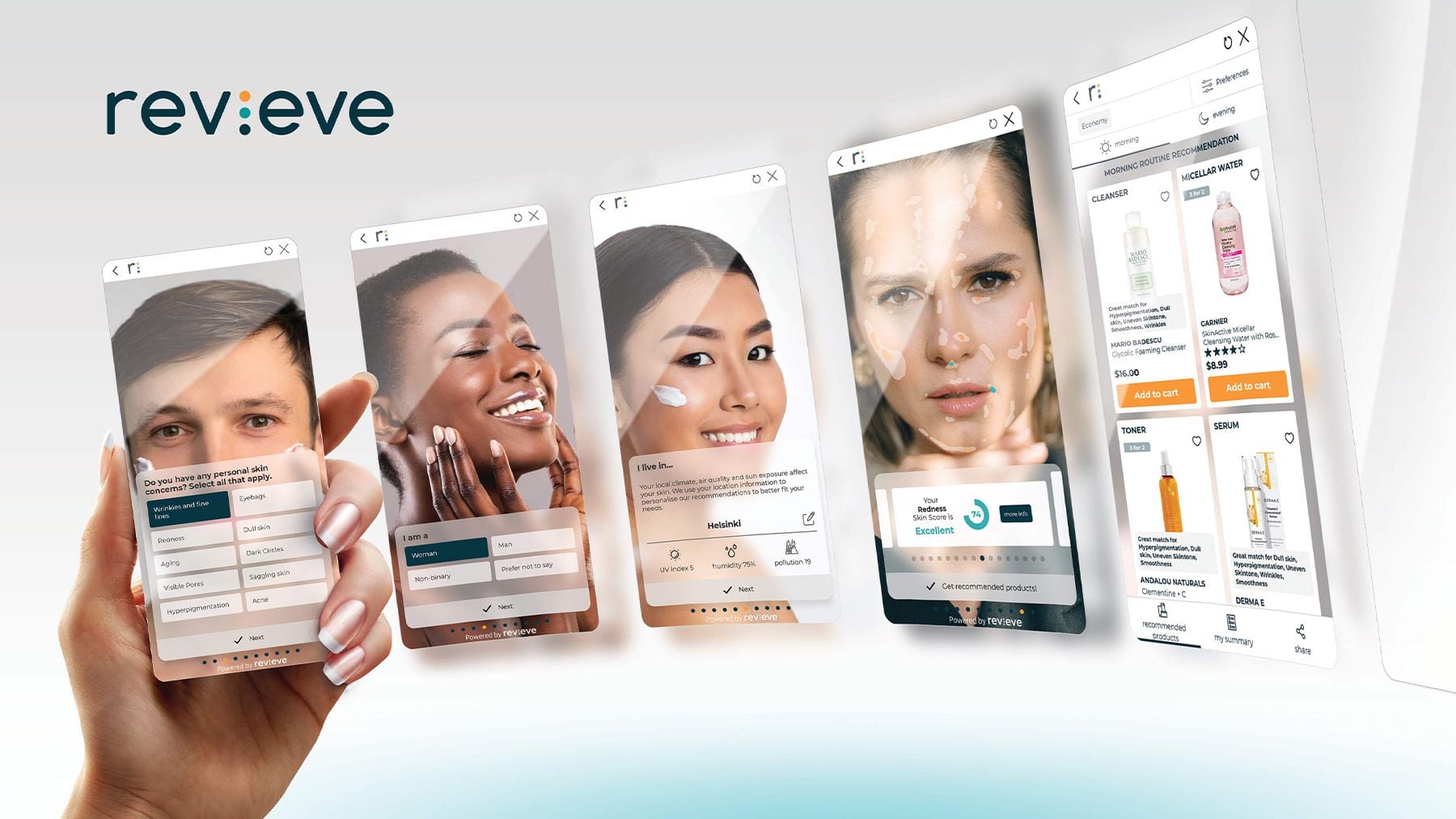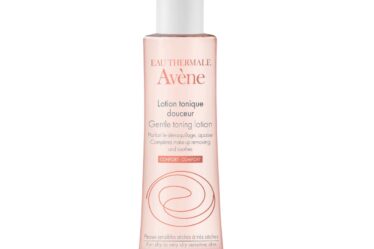
The beauty e-commerce experience just keeps getting more tech-centric.
While TikTok Shop and Pinterest’s new AI e-commerce tool have made it easier for users to shop for products seen in videos and images online, beauty shoppers looking to replicate a creator’s eyeshadow look have been left stumped unless there’s an explicit mention of the product.
That is, until now. A new tool from Revieve, an artificial-intelligence and augmented-reality beauty platform called Match My Look aims to solve this pain point. Match My Look users will be able to upload an image of a beauty look — be it from social media, magazines or their phones — and Revieve says the tool will detect the exact products used and then show them where they can purchase said item.
It’s analogous to Google’s reverse image search, said Irina Mazur, chief product and marketing officer at Revieve, and uses machine learning algorithms to analyse data from its product catalogue and insights from consumers using its AR try-on.
This type of search has been challenging with makeup products because they look different on everyone, she said. Revieve’s pitch to users is that the software can translate not just the colour but how the product looks visually on different skin types and skin tones to offer better recommendations.
“This consumer is very online. Their purchase journey may end in stores but it starts online. There is great opportunity in helping them complete it online, too,” said Lindsay Drucker Mann, global chief financial officer at tech firm and beauty incubator Oddity.
Beauty companies have increasingly been taking advantage of technologies like artificial intelligence and augmented reality to make it easier to buy makeup and skincare online, offering everything from product recommendations and virtual try-ons to skin-analysis tests.
It’s also a way to stand out in a competitive beauty landscape. While in a physical retail environment, sales associates and consultants are available to explain different products’ uses and ingredients, the online shopping experience is radically different, Drucker Mann said.
“What the beauty industry got wrong is they basically just put up website catalogues and dropped a consumer into it expecting them to know what they need,” said Drucker Mann.
According to Drucker Mann, there are indicators that its customer is responding to an AI-backed retail experience, with half of their consumer base being repeat shoppers. The company, which went public last year, reported revenue growth of 57 percent in 2023 compared to the year prior, and is committed to throwing their might behind AI to convert more shoppers into loyal customers in 2024. With the acquisition of biotech start-up Revela, the company is investing in AI-based ingredient molecule discovery, as opposed to using traditional chemistry, in a new venture called Oddity Labs.
Beyond retail, Oddity will be launching a skincare brand in 2025 using technology from Oddity Labs, and recently acquired tech start-up Voyage81′s patented hyperspectral technology used to detect skin conditions.
Other tech firms, like Haut AI, are hoping to replace the need to visit a physical store or see a dermatologist. The company launched SkinGPT, a hair and skin analytics platform that uses generative AI, which enables users to upload images of themselves and simulate the effects of a skincare product over time. Additionally, the software is able to detect problem areas and recommend products and treatment plans for skin issues. The company has partnered with a number of retailers and brands, including Ulta Beauty, which has a version of the SkinGPT platform available on its Ulta Beauty’s app.
The medical field has also found AI to be useful for clinical diagnoses and treatments, with a number of dermatologists, and even Google, turning to 3D imaging systems to detect common skin conditions such as dermatitis and psoriasis. Beauty companies are using the same capabilities to spot and treat cosmetic skin issues such as dry skin and dark circles.
Haut AI says its skin-analysis system is trained using clinical trial data for different skincare products. The company is planning to scale its skincare e-commerce personalisation software to make it available for brands and retailers to integrate on their platforms using the €2 million ($2.17 million) it raised in a seed round from Longe VC, a venture capital firm, and the venture capital arm of Grupo Boticário in 2023.
“There are a lot of [skincare] products on the market that are under-performing,” said Anastasia Georgievskaya, Haut AI’s co-founder and chief executive. “The adoption of these tools means that brands and retailers are able to focus on products that are most beneficial to the consumer.”
While advancements in beauty retail are exciting, it is still too soon to tell whether a personalised shopping experience will dominate all circles. Beauty remains a community-driven industry with recommendations from trusted peers being primary drivers of sales, discovery and innovation.



